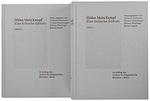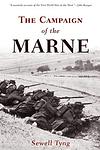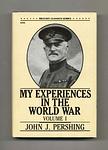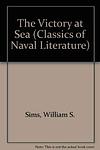The Greatest "Nonfiction, World War I" Books of All Time
Click to learn how this list is calculated.
This list represents a comprehensive and trusted collection of the greatest books. Developed through a specialized algorithm, it brings together 300 'best of' book lists to form a definitive guide to the world's most acclaimed books. For those interested in how these books are chosen, additional details can be found on the rankings page.
Genres
Countries
Date Range
Reading Statistics
Click the button below to see how many of these books you've read!
Download
If you're interested in downloading this list as a CSV file for use in a spreadsheet application, you can easily do so by clicking the button below. Please note that to ensure a manageable file size and faster download, the CSV will include details for only the first 500 books.
Download-
1. Testament Of Youth by Vera Brittain
Testament of Youth is a poignant memoir detailing the author's experiences during World War I. The narrative follows her journey from her early life, her time as a Voluntary Aid Detachment nurse serving in London, Malta, and France, and her later years as a writer and pacifist. The author's personal loss, including the death of her fiancé and her brother, and the impact of the war on her generation, is a central theme, offering a unique female perspective on the devastating effects of war.
-
2. Good-Bye to All That by Robert Graves
This memoir provides a candid and unflinching look at the horrors of World War I, as experienced by a young British officer. The narrative explores the brutality and futility of war, the author's struggle with shell shock, his disillusionment with the military and British society, and his decision to leave England for a new life abroad. It also offers insights into the author's personal life, including his troubled marriage and his relationships with other prominent figures of the time.
-
3. The Guns of August by Barbara Tuchman
"The Guns of August" is a detailed and engaging account of the first month of World War I. The book explores the events leading up to the war, the political and military strategies of the various countries involved, and the critical decisions that shaped the course of the conflict. It presents a vivid picture of the war's early stages, highlighting the miscalculations, miscommunications, and misunderstandings that led to one of the most devastating wars in history.
-
4. Mein Kampf by Adolf Hitler
This book is a two-volume work written by a prominent dictator during his imprisonment in 1924. It outlines his political ideology and future plans for Germany, combining elements of autobiography with an exposition of his views on race, nationality, and governance. The author's main thesis is that the German-speaking 'Aryan' race is superior to all others, and that it is the duty of the state to preserve the purity of this race through policies of racial segregation, expansionism, and extermination. The book also contains detailed discussions on the author's hatred towards Jews, Marxism, and the parliamentary system.
-
5. The Great War and Modern Memory by Paul Fussell
"The Great War and Modern Memory" is a critical analysis of the impact of World War I on the English society and culture. The author explores the war's influence on literature, language, and symbolism, arguing that the horrific experiences of the war drastically altered public perception and understanding of conflict, honor, and heroism. The book combines literary criticism, history, and social commentary to provide a comprehensive examination of the war's lasting effects on the collective memory of the English-speaking world.
-
6. The Face of Battle by John Keegan
"The Face of Battle" is a military history book that examines warfare from the perspective of the common soldier. It explores three significant battles in detail - the Battle of Agincourt in 1415, the Battle of Waterloo in 1815, and the Battle of the Somme in 1916. By focusing on the experiences of the individual soldiers, the book provides readers with a unique insight into the reality of war, the strategies employed, the conditions faced by soldiers, the impact of technological advancements on warfare, and the human cost of these historic battles.
-
7. Storm of Steel by Ernst Jünger
"Storm of Steel" is a memoir of a German officer's experiences during World War I. The book provides a detailed account of the daily life in the trenches, the brutal and chaotic nature of warfare, and the psychological impact on the soldiers. The author describes the horrors of war with a sense of detachment, viewing the battlefield as a place where one's character is tested and shaped. Despite the grim subject matter, the memoir is often noted for its poetic language and vivid imagery.
-
8. The Campaign of the Marne by Sewell Tyng
"The Campaign of the Marne" is a detailed account of the crucial battle that took place during the early stages of World War I. The book provides an in-depth analysis of the strategies, tactics, and decisions made by both the Allies and the German forces. It sheds light on the significant impact of the battle, which halted the German advance into France and marked a turning point in the war. The author also explores the larger political and social context of the war, offering a comprehensive understanding of this critical historical event.
-
9. Memoirs of a Fox-Hunting Man by Siegfried Sassoon
This semi-autobiographical novel follows the life of a young man growing up in the English countryside in the early 20th century. He's enamored with the sport of fox hunting, and through his experiences and interactions with the rural community and the natural world, he develops a deep appreciation for the beauty and tranquility of life. However, the advent of World War I shatters his peaceful existence, forcing him to confront the harsh realities of life and the brutality of war.
-
10. The Burden of Southern History by C. Vann Woodward
This book explores the unique and complex history of the American South, examining its racial tensions, social inequalities, and political controversies. The author analyzes the impact of the Civil War and Reconstruction, the myths and realities of the Old South, the region's relationship with the rest of the United States, and the ways in which its history has shaped its contemporary identity. The book provides a comprehensive and nuanced understanding of the South's historical burden and its influence on the region's present and future.
-
11. My Life by Leon Trotsky
This autobiography provides a detailed account of the life of a prominent Russian revolutionary and Marxist theorist. The book traces his early life, education, and political development, his role in the Russian Revolution and Civil War, his leadership of the Red Army, and his expulsion from the Communist Party and subsequent exile. It offers a unique perspective on key events in 20th-century history and an insight into the author's complex personality and intellectual development.
-
12. The Economic Consequences of the Peace by John Maynard Keynes
This book is a critique of the Treaty of Versailles, written by a British economist who was part of the British delegation to the peace conference. The author argues that the harsh reparations and economic measures imposed on Germany after World War I were unfair and would lead to economic instability and another war. He suggests that a more just and economically sound approach would have been to rebuild Germany and integrate it into the global economy, rather than punishing it.
-
13. War by Margaret MacMillan
"War" by Margaret MacMillan is a comprehensive analysis of the causes, conduct, and consequences of war throughout history. Drawing on a vast range of sources, including personal accounts, political documents, and military strategy, MacMillan explores the human motivations behind war and the complex web of political, economic, and social factors that drive nations to conflict. She examines the impact of war on individuals and societies, from the trauma of soldiers on the front lines to the far-reaching political and economic consequences of global conflicts. Ultimately, MacMillan argues that war is a deeply human phenomenon, shaped by the complex interplay of individual and collective desires, fears, and ambitions.
-
14. Unfinished Business by Stephen Bonsal
"Unfinished Business" is a historical account of the author's experiences and observations as a diplomat and journalist in the early 20th century. It provides an in-depth look at the political climate during that time, including the Spanish-American War, the Russo-Japanese War, and World War I. The author shares his personal insights and interactions with key figures of the era, offering readers a unique perspective on the events that shaped the world during this tumultuous time.
-
15. My Experiences in the World War by John J. Pershing
This book is a first-hand account of a high-ranking military officer's experiences during World War I. It provides an in-depth look at the planning, strategy, and execution of military operations, while also offering personal reflections on the war's impact. The author details his interactions with other key figures in the war, giving readers a unique perspective on this historical event.
-
16. The Coming of the War, 1914 by Bernadotte E. Schmitt
"The Coming of the War, 1914" is a comprehensive historical analysis of the factors and events that led to the outbreak of World War I. The author meticulously details the geopolitical tensions, alliances, and conflicts among the European powers in the early 20th century. The book also delves into the roles of key figures and nations, providing a thorough understanding of the complex circumstances that culminated in one of history's most devastating wars.
-
17. The Victory at Sea by William Sowden Sims
"The Victory at Sea" is a detailed account of naval operations during World War I, written by a high-ranking naval officer who was deeply involved in the events. The book offers a comprehensive look at the strategies, tactics, and logistics that led to Allied success in the war, as well as the challenges faced by the naval forces. It also provides an insider's perspective on the political and diplomatic maneuverings that shaped the course of the war.
-
18. A Prince of Our Disorder: The Life of T E. Lawrence by John E. Mack
This biography provides a comprehensive look into the life of T.E. Lawrence, a British archaeologist, army officer, diplomat, and writer renowned for his role in the Arab Revolt against the Ottoman Empire during World War I. The book delves into Lawrence's complex personality, his struggles with identity and his quest for personal growth amidst the backdrop of war, politics and diplomacy. It provides an in-depth analysis of his experiences and their impact on his psychological state, revealing the man behind the legend.
Reading Statistics
Click the button below to see how many of these books you've read!
Download
If you're interested in downloading this list as a CSV file for use in a spreadsheet application, you can easily do so by clicking the button below. Please note that to ensure a manageable file size and faster download, the CSV will include details for only the first 500 books.
Download
















